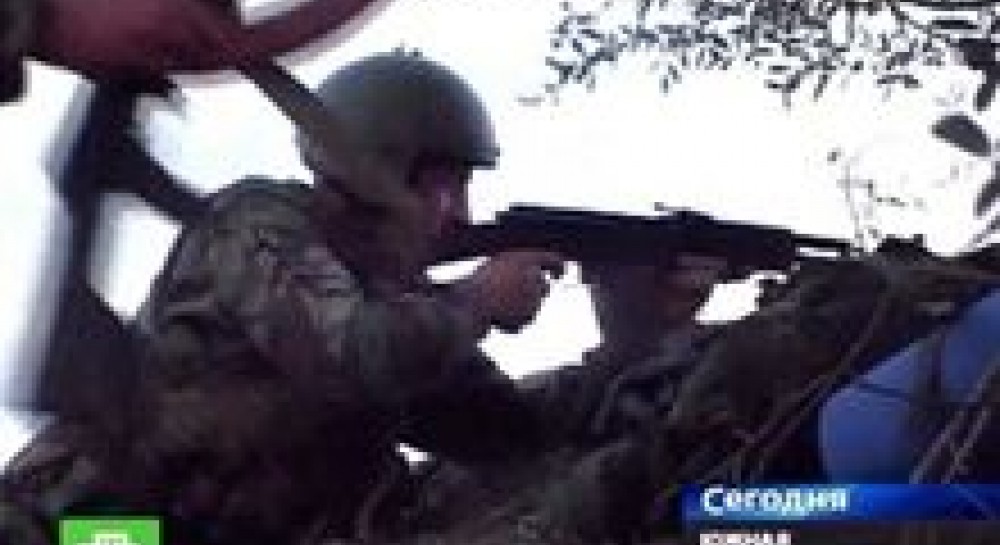
Bang bang, who’s dead?
If it is not the prelude to a real war, it risks being mistaken for one—and in a corner of Europe where Western and Russian interests could clash nastily. The talk of war has been in the air for months. But in the past two weeks six people have been killed...
If it is not the prelude to a real war, it risks being mistaken for one—and in a corner of Europe where Western and Russian interests could clash nastily. The talk of war has been in the air for months. But in the past two weeks six people have been killed in the breakaway (and Russian-backed) region of South Ossetia.
Claim and counterclaim abound. Russia says that Georgia fired first and is reinforcing its forces as a prelude to war. It sent warplanes into Georgian airspace last month—to deter an attack, it said. It also blames Georgian warplanes for violating South Ossetian airspace. Georgia says this is disinformation: Russia and its South Ossetian allies “are trying to create an alternative reality”, says a spokesman. Georgia has brought foreign ambassadors to inspect its lightly armed guard posts which, it insists, fire only in self-defence. This is by no means the first skirmish in the region. Georgian and South Ossetian politicians wrangled about a possible meeting on August 7th aimed at calming the mood.
But the row has given Russia a chance to step up pressure on Georgia, portrayed in the Russian media as a tiresome and aggressive Western stooge. The South Ossetian leader, Eduard Kokoity, said that he would force Georgian forces out of his self-declared republic (which is a patchwork of villages and small towns, some controlled by Georgian authorities and others by separatists). He says 300 Russian irregulars have come to his aid.
The quarrel in South Ossetia follows an escalation of tension in the other breakaway region of Georgia, Abkhazia. Russia has reinforced its military presence there, which is nominally part of a UN-monitored peacekeeping effort. A German-drafted peace plan for the economic revival of Abkhazia, indefinite autonomy and the return of Georgian refugees has so far stalled. The Abkhaz authorities are uneasy about the Russian embrace, but fear the return of ethnic Georgian refugees, once the largest ethnic group in the region.
The Kremlin’s immediate aim seems to be to force Georgia to return to the Joint Control Commission in South Ossetia. This body comprises Georgia, Russia, South Ossetia and the Russian republic of North Ossetia, just across the border, with the Organisation for Security and Co-operation in Europe (OSCE), a Vienna-based multilateral body, as an observer. Georgia thinks that this is intolerably unbalanced and has walked out.
Russia also wants Georgia to give a formal guarantee that it will not use force in either breakaway region. Georgia thinks that unless its refugees can return this would amount to de facto recognition of the secessionists. It wants a stronger OSCE presence, demilitarisation, and international (not Russian) peacekeepers. It also wants joint Georgian-Russian control of the Roki tunnel under the Caucasus mountains. This, Georgia says, is used both for smuggling and for illegal reinforcements to South Ossetia.
Russia’s broader aim may be to try to roll back the advance of pro-Western forces in its “near abroad” by highlighting the West’s inability to help Georgia. The hotting up of Georgia’s conflicts coincided with Kosovo’s declaration of independence, recognised by much of the West, and American pressure for the expansion of NATO to Georgia and Ukraine.
That move has been stymied, mainly by Germany; Georgia was promised eventual NATO membership but no firm plan. Though Georgia has become a vital corridor for oil and gas exports to Europe, this has not brought the support that its leaders had expected. A lame-duck American administration has been able to do little, though Georgians hope a presidential-election victory by John McCain, an ardent supporter, may change their fortunes. The country’s strong-willed and idiosyncratic president, Mikheil Saakashvili, is not seen by all European leaders as quite the paragon of legality, freedom and reform that he claims to be. Georgia’s image was severely dented in November last year by a crackdown against the opposition.
Georgia is in a quandary: its Western friends tell it to stay calm yet seem unable to stop Russian bullying. It is all too easy to imagine misjudgements on either side leading to a real war. Georgian officials will spend August nervously at their desks. Some of their European counterparts may have other plans. As the recipients of an often daily blizzard of alarms and appeals from Georgia, they think that a summer break might be just the ticket.

